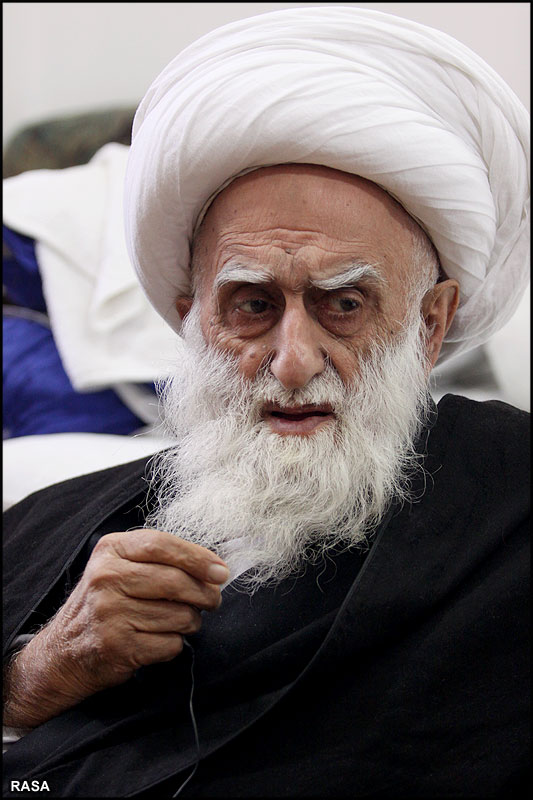
RNA – Ayatollah Abdollah Nazari-Khademosharieh, a renowned Iranian scholar and revolutionary, has been admitted to a hospital in the city of Sari in the northern province of Mazandaran due to an illness, sources told Rasa News.
Hujjat al-Islam Khademosharieh’s son confirmed the report in an interview with Rasa News adding: “Fortunately, due to the merciful prayers of the people, the general heath of Ayatollah Nazari Khademosharieh is favourable.”
He noted that his father was admitted to the hospital in Sari due to internal bleeding on the night of the martyrdom of the tenth Shi’ite Imam, Ali ibn Muhammad al-Hadi, after attending a mourning ceremony.
He asked the believers to pray for the recovery of all sick people, especially Ayatollah Nazari-Khademosharieh.
Ayatollah Nazari-Khademosharieh is one of the most eminent students of Allamah Tabatabai and Imam Khomeini. Due to his strident efforts to promote the Islamic Revolution, he was the first person to announce the support of the people for the glorious Islamic Revolution led by Imam Khomeini.
When the late Imam was exiled to Paris, Ayatollah Nazari-Khademosharieh promoted his speeches among the people of Mazandaran. Due to these efforts, when the Islamic Revolutionary achieved victory, Imam Khomeini personally asked him to stay in Mazandaran and take over the leadership of the Islamic Revolution in the province.
His Eminence has walked fervently alongside the revolution and the revolutionary people of Iran, and was present at the forefront of protests and demonstrations against the US-backed Pahlavi monarchy and was tortured numerous times by the Shah’s secret police, SAVAK.
111/112